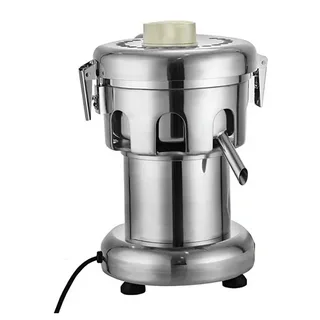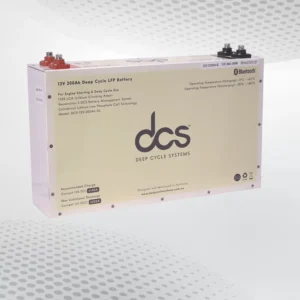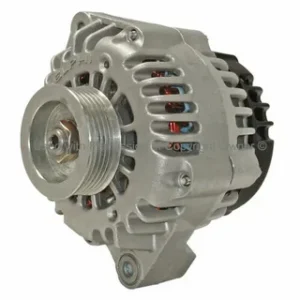In the ever-evolving world of the food and beverage industry, staying ahead of the competition means constantly innovating and offering unique products to your customers. One of the most effective ways to transform your beverage menu and deliver something fresh and enticing is by incorporating a high-quality commercial-juicer machine. These machines are a tool and a gateway to crafting delightful, nutritious drinks that can set your establishment apart. By leveraging the capabilities of a commercial juicer machine, businesses can elevate their offerings and appeal to health-conscious consumers.
Understanding Commercial-Juicer Machines
Understanding commercial-juicer machines is essential for businesses aiming to offer high-quality juice products. Unlike home juicers, commercial models are designed for heavy use and are built to handle larger volumes of fruits and vegetables. They typically feature more powerful motors, which allow for faster extraction and greater efficiency, making them ideal for busy environments like restaurants, cafes, and juice bars.
There are several types of commercial-juicers, including centrifugal, masticating, and cold-press models. Centrifugal juicers are known for their speed and are excellent for soft fruits while masticating juicers excel at extracting juice from leafy greens and hard vegetables.
Cold-press juicers preserve more nutrients and enzymes, providing higher-quality juice, but may require more prep time. Moreover, commercial-juicers come with various features designed to enhance usability. These may include large feeding chutes, adjustable speeds, and easy-to-clean designs.
Durability and Reliability in High-Quality Juicers
Durability and reliability are paramount when investing in a juicer, especially for commercial use. High-quality juicers are engineered to withstand the demands of daily operations, making them essential assets for juice bars, restaurants, and cafes. Juicers’ durability often stems from the materials used in their construction. Stainless steel components, for instance, resist corrosion and wear, ensuring a longer lifespan even with constant use.
A well-built juicer can handle various produce types, from soft fruits to hard vegetables, without compromising performance. Reliability is equally important, as it minimises downtime and maintenance costs. A high-quality juicer should consistently deliver excellent performance, providing smooth, nutritious juice with minimal effort. Commercial-grade juicers are designed for high throughput, meaning they can efficiently process large quantities without overheating or malfunctioning.
Investing in durable and reliable juicers enhances productivity and ensures customer satisfaction. When businesses consistently provide fresh, high-quality juice, they build trust and loyalty among their clientele. Additionally, reliable equipment contributes to a smoother operational workflow, allowing staff to focus on serving customers rather than dealing with equipment issues.
Customisation and Variety: Expanding Your Beverage Menu
Customisation is critical to standing out in the competitive food and beverage industry. With a high-quality commercial-juicer machine, you can easily experiment with various fruits and vegetables to create unique juice blends that cater to different tastes and dietary preferences.
The versatility of these machines allows you to offer an array of seasonal and exotic flavours, keeping your menu dynamic and exciting. Regularly updating your juice selections and incorporating trending ingredients can attract new customers while retaining your loyal patrons. Additionally, offering customisable juice options where customers select their preferred ingredients can enhance their experience and satisfaction.
The Benefits of Using a Commercial Cold Press Juicer
Using a commercial cold-press juicer offers numerous benefits that can significantly enhance the quality of juice produced and contribute to a business’s success. Here are the key advantages:
Higher Nutritional Value
A commercial cold-press juicer operates at lower speeds and generates minimal heat during juicing. This preservation of nutrients ensures that vitamins, minerals, and enzymes remain intact, resulting in more nutritious juice than that produced by traditional juicers. Customers seeking health benefits are more likely to choose a cold-pressed juice.
Superior Flavor
Cold-press juicing extracts juice by applying pressure to fruits and vegetables, which enhances the flavour profile. The result is a smoother, richer taste without the oxidation that can occur with high-speed juicers. Customers often notice and appreciate the difference in flavour, leading to increased satisfaction and repeat business.
Longer Shelf Life
Juices produced with a commercial cold press juicer tend to have a longer shelf life due to reduced oxidation. This allows businesses to prepare juices in advance and store them without sacrificing quality, making inventory management more efficient.
Versatility
These juicers, including leafy greens, nuts, and hard vegetables, can process produce. This versatility enables businesses to create diverse juice blends, catering to different customer preferences and dietary needs.
Minimal Waste
Cold-press juicing maximises juice extraction, resulting in less waste than traditional juicing methods. The dry pulp left behind contains fewer nutrients, making it easier to manage waste while still providing high-quality juice for customers.
Maintenance and Care for Longevity
Proper maintenance and care ensure equipment longevity, particularly in high-demand environments like restaurants and juice bars. For commercial-juicer machines, routine upkeep can significantly extend their lifespan and enhance performance. One of the most critical maintenance tasks is regular cleaning.
After each use, it is vital to disassemble the juicer and wash all removable parts in warm, soapy water. This prevents the buildup of pulp and juice residue, which can lead to clogs and affect the machine’s efficiency. A soft brush can help reach difficult areas, ensuring a thorough clean. Operators should check the blades and screens regularly for wear and tear. Dull blades can reduce juicing efficiency, so it’s crucial to replace them as needed.
Routine inspections of electrical components and wiring can also prevent malfunctions. Ensuring the juicer is stored in a dry area and protected from moisture can help maintain its electrical integrity. Following the manufacturer’s guidelines for maintenance schedules and servicing can prevent costly repairs. By implementing these care practices, businesses can ensure their commercial-juicer machines operate smoothly, provide consistent quality, and have a longer lifespan, ultimately saving costs over time.
Enhancing Your Menu with Fresh Juices
Enhancing a menu with fresh juices can significantly elevate the dining experience, providing customers with nutritious and flavorful options. Fresh juices offer a burst of vibrant flavours and contribute to health and wellness, aligning with growing consumer preferences for healthy eating.
By incorporating a commercial-juicer machine into the kitchen, restaurants and cafes can easily create a variety of juice blends that showcase seasonal fruits and vegetables. This adds colour and freshness to the menu and allows for creative combinations that can attract health-conscious customers. Offering fresh juices can set a business apart from competitors. Unique juice offerings, such as superfood blends or detox juices, can become signature items that draw attention and encourage repeat visits.
Fresh juices can also complement food pairings, enhancing overall meal satisfaction. For instance, a refreshing citrus juice can elevate a light salad, while a nutrient-packed green juice can accompany a hearty meal. Moreover, promoting fresh juices through social media and marketing can enhance visibility and attract a wider audience.
Commercial-Juicer Machines for Smooth Operations
Commercial-juicer machines ensure smooth operations in restaurants, cafes, and juice bars. These machines are designed for high efficiency and durability and can handle large production volumes while delivering consistent results. Their robust construction allows them to withstand daily use, reducing downtime and maintenance costs, which is essential for busy establishments.
One key advantage of commercial-juicers is their ability to extract maximum juice from fruits and vegetables, which enhances flavour and increases profitability by minimising waste. Many models have advanced features such as variable speed settings and dual-stage extraction, allowing operators to customise the juicing process for different ingredients. The ease of operation is a significant benefit.
Most commercial-juicer machines are designed for quick assembly and disassembly, making them easy to clean and maintain. This feature ensures that hygiene standards are met, which is crucial in foodservice environments. Furthermore, many commercial-juicers are designed with safety features, including automatic shut-off mechanisms and safety locks, providing peace of mind to operators. By incorporating high-quality commercial-juicer machines into their operations, businesses can enhance productivity, improve customer satisfaction, and drive revenue growth.
Choosing the Right Commercial Juicer for Your Business
Selecting the ideal commercial juicer for your establishment requires careful consideration of various factors. Start by evaluating the specific needs of your menu and the volume of juice your business expects to produce daily. This will help you determine whether a centrifugal, masticating, or cold-press juicer is most suitable. Additionally, consider the available space in your kitchen to ensure the machine fits comfortably without disrupting workflow.
Ease of cleaning and maintenance is another crucial factor, as a simple machine to disassemble and clean will save valuable time and effort. Energy efficiency is equally important, as it can impact your operational costs in the long run. Look for juicers that offer robust performance while consuming minimal power.
Researching product reviews and seeking recommendations from other businesses in the industry can provide valuable insights into the reliability and performance of different models. Some manufacturers also offer demonstration units or trial periods, which can be beneficial for assessing the machine’s suitability before making a purchase. Consider the overall cost, including additional features that may enhance your operations, such as automatic pulp ejection or noise reduction technology.
Conclusion
In conclusion, investing in a high-quality commercial-juicer machine can significantly elevate a beverage menu, enhancing the quality and variety of offerings. By producing fresh, nutrient-rich juices, businesses can cater to health-conscious consumers and differentiate themselves in a competitive market. The efficiency and reliability of these machines also streamline operations, allowing for faster service and reduced waste. Ultimately, the right juicer boosts customer satisfaction and contributes to long-term business success.
FAQs
How does a commercial-juicer machine differ from a home juicer?
A commercial-juicer machine is built to handle larger quantities of produce and is typically more robust and powerful than home juicers. It is designed for continuous use, ensuring consistent performance, while home juicers may struggle with heavy loads.
What types of produce can a commercial-juicer machine handle?
A commercial-juicer machine can handle a wide variety of produce, including soft fruits like oranges and berries, hard vegetables like carrots and beets, and leafy greens like kale and spinach. Many machines are versatile enough to process different types of ingredients for various juice recipes.
What are the maintenance requirements for a commercial juicer machine?
To keep a commercial juicer machine running efficiently, regular cleaning and maintenance are essential. This includes disassembling parts for thorough cleaning, checking for wear and tear, and ensuring that blades and filters are in good condition. Following the manufacturer’s guidelines helps prolong the machine’s lifespan.
How much juice can a commercial-juicer machine produce in an hour?
The juice production capacity of a commercial-juicer machine varies by model but can typically range from 20 to 120 liters per hour. The machine’s power, design, and type of juiced produce influence its output.
Is a commercial-juicer machine worth the investment for a small business?
Investing in a commercial-juicer machine can be worthwhile for a small business that aims to offer fresh juices. These machines’ high efficiency and durability can lead to increased customer satisfaction, repeat business, and potential revenue growth.




